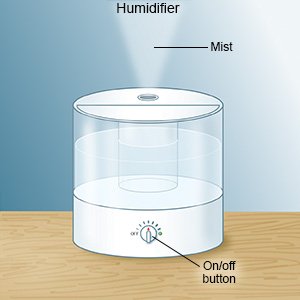Acute Cough
Medically reviewed by Drugs.com. Last updated on Aug 4, 2025.
What is an acute cough?
An acute cough can last up to 3 weeks. Common causes of an acute cough include a cold, allergies, or a lung infection.
How is the cause of an acute cough diagnosed?
Your healthcare provider will examine you and listen to your lungs. Tell your healthcare provider if you cough up any mucus, or have a fever or shortness of breath. Also tell your provider what makes the cough better or worse. Depending on your symptoms, you may need a chest x-ray. A sample of mucus may be collected and tested for infection.
How is an acute cough treated?
An acute cough usually goes away on its own. Ask your healthcare provider about medicines you can take to decrease your cough. You may need medicine to stop the cough, decrease swelling in your airways, or help open your airways. Medicine may also be given to help you cough up mucus. If you have an infection caused by bacteria, you may need antibiotics.
Treatment options
The following list of medications are related to or used in the treatment of this condition.
What can I do to manage my cough?
- Do not smoke and stay away from others who smoke. Nicotine and other chemicals in cigarettes and cigars can cause lung damage and make your cough worse. Ask your healthcare provider for information if you currently smoke and need help to quit. E-cigarettes or smokeless tobacco still contain nicotine. Talk to your healthcare provider before you use these products.
- Drink extra liquids as directed. Liquids will help thin and loosen mucus so you can cough it up. Liquids will also help prevent dehydration. Examples of good liquids to drink include water, fruit juice, and broth. Do not drink liquids that contain caffeine. Caffeine can increase your risk for dehydration. Ask your healthcare provider how much liquid to drink each day.
- Rest as directed. Do not do activities that make your cough worse, such as exercise.
- Use a humidifier or vaporizer. Use a cool mist humidifier or a vaporizer to increase air moisture in your home. This may make it easier for you to breathe and help decrease your cough.

- Eat 2 to 5 mL of honey 2 times each day. Honey can help thin mucus and decrease your cough.
- Use cough drops or lozenges. These can help decrease throat irritation and your cough.
When should I seek immediate care?
- You have trouble breathing or feel short of breath.
- You cough up blood, or you see blood in your mucus.
- You faint or feel weak or dizzy.
- You have chest pain when you cough or take a deep breath.
- You have new wheezing.
When should I contact my healthcare provider?
- You have a fever.
- Your cough lasts longer than 4 weeks.
- Your symptoms do not improve with treatment.
- You have questions or concerns about your condition or care.
Care Agreement
You have the right to help plan your care. Learn about your health condition and how it may be treated. Discuss treatment options with your healthcare providers to decide what care you want to receive. You always have the right to refuse treatment. The above information is an educational aid only. It is not intended as medical advice for individual conditions or treatments. Talk to your doctor, nurse or pharmacist before following any medical regimen to see if it is safe and effective for you.© Copyright Merative 2025 Information is for End User's use only and may not be sold, redistributed or otherwise used for commercial purposes.
Learn more about Acute Cough
Treatment options
Care guides
Medicine.com guides (external)
Further information
Always consult your healthcare provider to ensure the information displayed on this page applies to your personal circumstances.
